Leighlinbridge marks 150th anniversary of John Tyndall
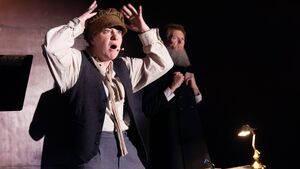
Paddy O’Byrne as John Tyndall as Deirdre Colhoun recites ‘Democritus at Belfast’ during Carlow Little Theatre’s presentation of the 150th Anniversary of the John Tyndall Belfast Address
LEIGHLINBRIDGE pulled out all the stops last week to honour its famous son John Tyndall. Corresponding with the 150th anniversary of his infamous Belfast address, Carlow County Council and Carlow Tourism marked the occasion with a day of celebration as part of their Heritage Week offering.
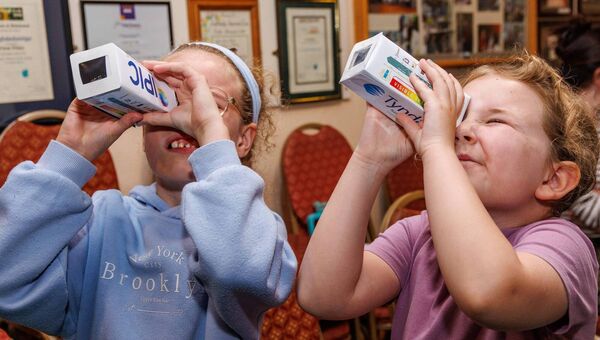
The 19th century scientist, inventor, educator and mountaineer was born by the banks of the River Barrow and the legacy of his career is very much in evidence to this day. As one of Ireland’s great scientists he discovered, among many things, the science of climate change, why the sky is blue, he developed a sterilisation method called Tyndallisation and published one of the first books in English on mountaineering. There is even a peak in the Alps and a crater on Mars named in his honour.
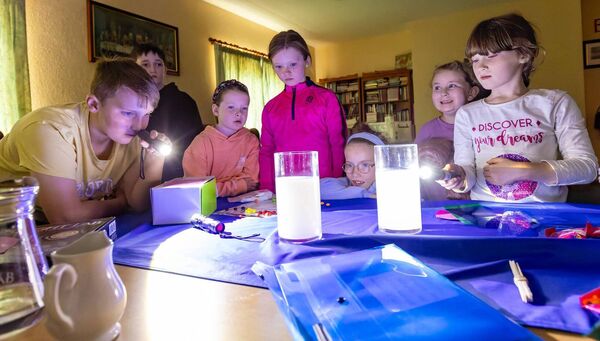
The day began with three free Tyndall-inspired children's 'Blue Sky' science workshops hosted in Leighlin Parish Centre by the Tyndall National Institute in Cork. Children were invited to discover why the sky is blue, the science of rainbows and how we see colours. There were also opportunities to conduct ‘citizen investigations’ and learn about the modern uses of John Tyndall’s work.
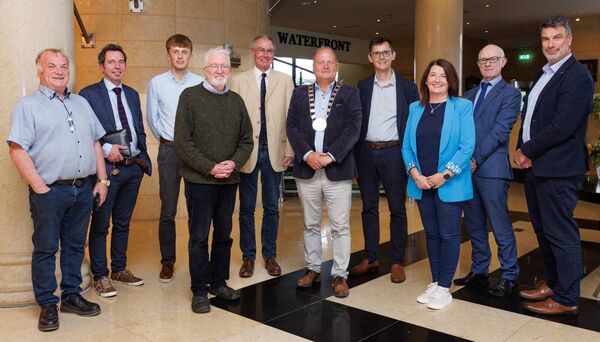
The Tyndall National Institute is a research flagship of University College Cork, with a multidisciplinary community of over 600 researchers, engineers and support staff. They are a leading European deep-tech research centre in integrated Information and Communications Technology hardware and systems. Essentially, they carry on 21st century research inspired by John Tyndall’s 19th century experiments.
A guided afternoon stroll along the riverside provided an opportunity to retrace Tyndall’s daily journey from his home in Leighlinbridge to Ballinabrannaâ¯school, where he was inspired and mentored by his exceptional teacher John Conwill. The walk offered insights into Tyndall’s formative years and the surroundings that played a crucial role in shaping his future contributions to science and the world of mountaineering.
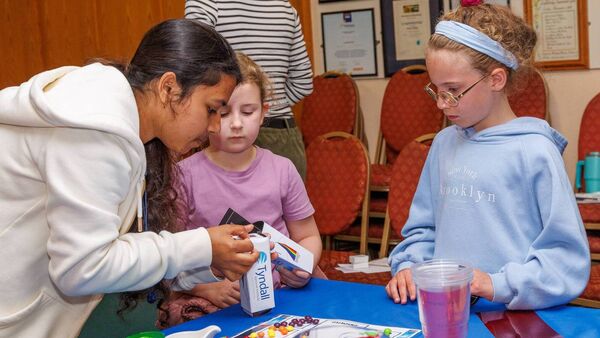
The day’s celebrations then moved to the Lord Bagenal Hotel, where Dr Diarmaid Finnegan gave a lecture on Tyndall’s 1874 Belfast Address, in which Tyndall argued for the pursuit of knowledge through science rather than religion. The famous address was then re-enacted by Carlow Little Theatre. The evening concluded with a performance of Tyndall-inspired music compositions by Leighlinbridge’s own Gráinne Mulvey, professor of composition at Technological University Dublin Conservatory of Music and Drama. Professor Mulvey is also a member of Aosdána, which honours artists whose work has made an outstanding contribution to the creative arts in Ireland. She is presently working on the production of a CD of her Tyndall-inspired compositions.




